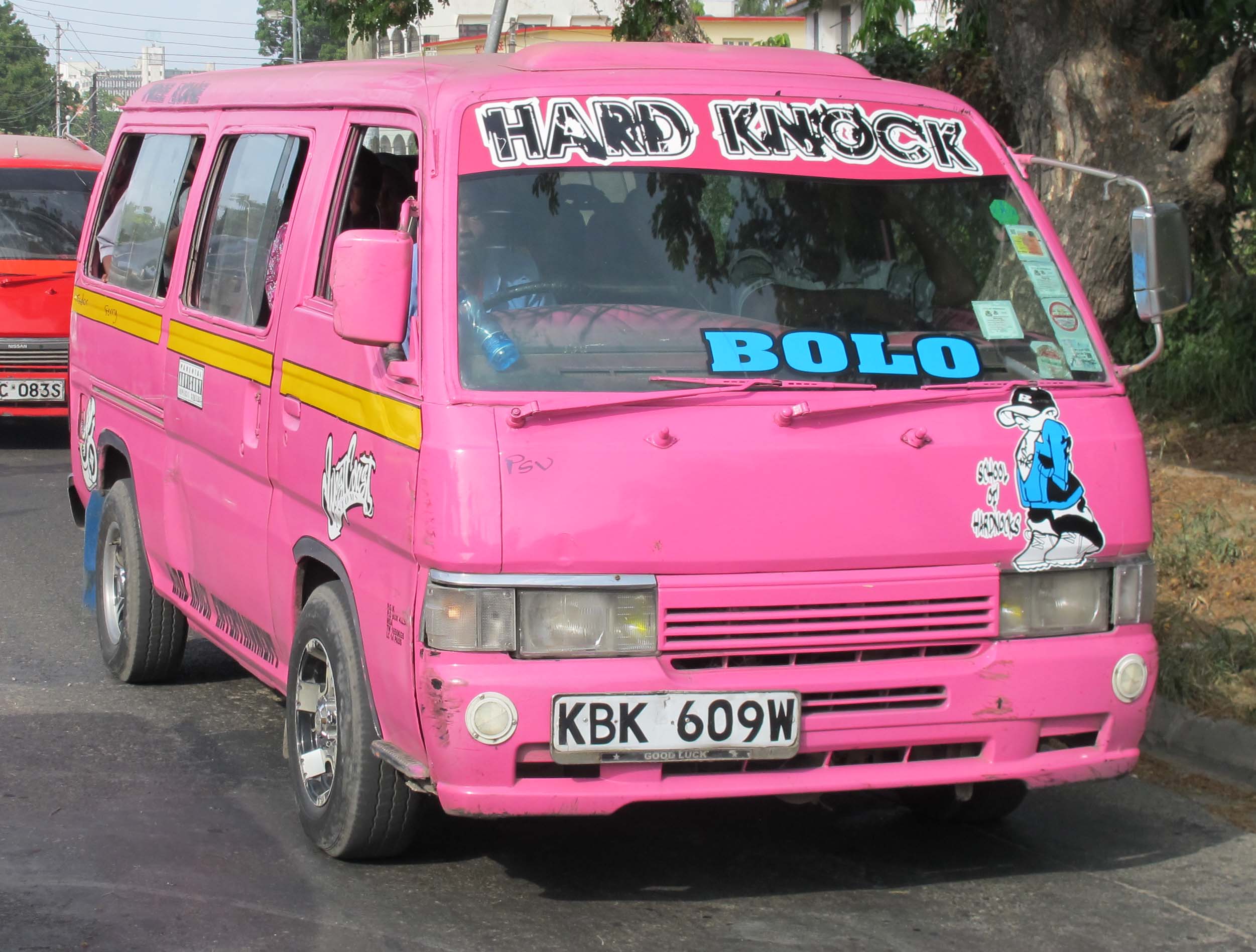Hot wheels: public transport African style

The shock of navigating Mombasa’s roads, even in a giant Land Cruiser, was such that survival was my only concern for some time. The surge of vehicles, each trying to gain advantage by any means, was in a different order of magnitude to traffic in any of the western metropolis that I have navigated by car – London, Paris, New York and Los Angeles.
Once accustomed to the pass-by-any-means-possible driving norms and lack of road signage, or definable road edges, I started to notice the multitudinous matatus – the largely unregulated fleet of Nisan minibuses that provide transport for millions of Kenyans every day.
Savagely competitive for passengers, they have adopted garish branding to try and stand out from the crowd. At first I just noted down their names: Soul Brotherz/Money Power, Respect Sir Alex, Parallel Mafia, Men Of God, Best Ever, Mighty Player, Van Persie (an unwittingly good pun, I suspect), Point Of No Return, Hit The Like Button, Handsome Boy, Addidas, Password, Mash Cool, Get Out More, Chelsea – The Bluez and The Lords Prayer. Then I started to photograph them. Those above were mostly taken on the Mombasa side of the Likoni ferry.
Matatus will generally stop wherever they are flagged down, and charge by the kilometer – the price is Ksh 2 – 7 per kilometer, so even the 300k journey from Nairobi to Kisumu might cost as little as Ksh 1,000 (£7ish). In recent years, there has been something of a panic about their operation. Terrible accidents are commonplace. Successive waves of regulation have tried to limit the number of passengers they can carry, the speed at which they can travel, and required the fitting of seatbelts.
While I was in Kenya, a ban on matatu’s operating at night was introduced – to howls of protests, and even more clogged day-time streets. Nonetheless, they visually enliven the urban environment in a way that Britain’s buses never have, and, for the moment at least, provide an enormously efficient means for millions of car-less Kenyans to travel to and from work each day.
My friend, Jenny Vaughan adds:
Way back, matatus weren’t actual buses at all, but pick-up trucks with a cabin built over the back, so smaller than these. Still painted with slogans, though – often religious ones. ‘Matatu’ comes from the Swahili for ‘three’ – reflecting a fare (in terms of pence or cents) in some distant time, but my Tanzanian boss in Nairobi said he thought it reflected the fact that they could always take at least three more passengers.
Photographs © Tim Dawson





































